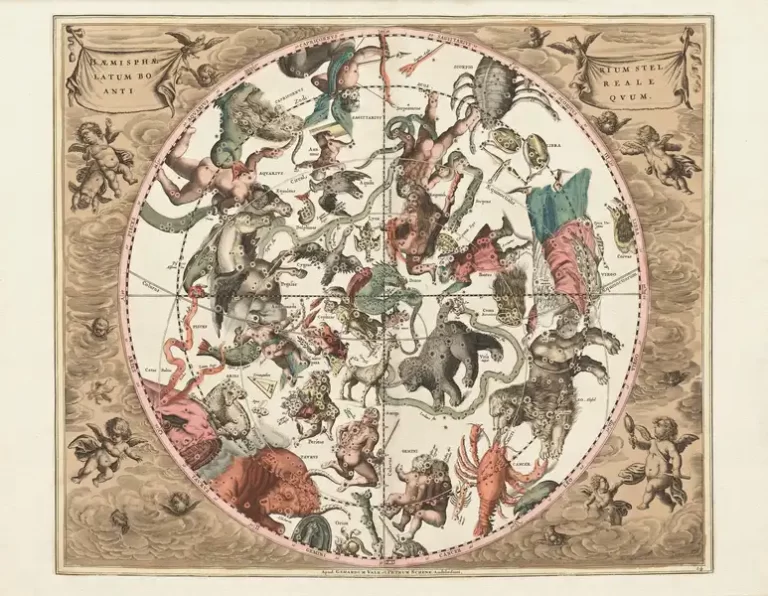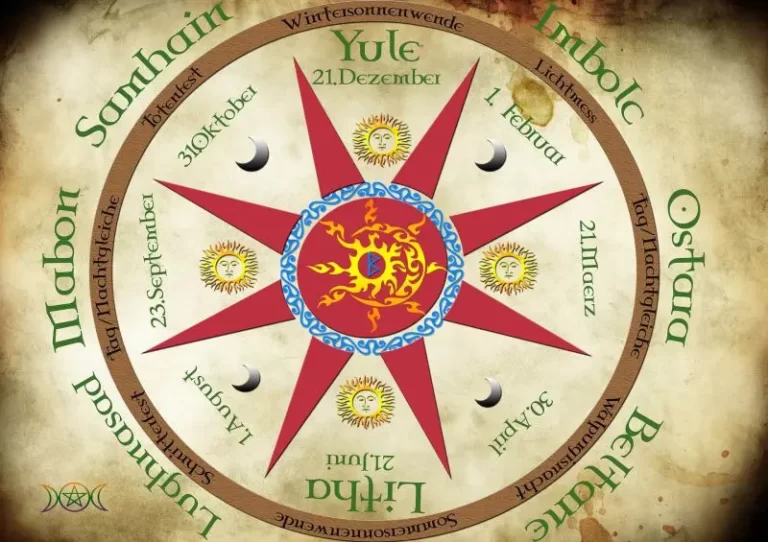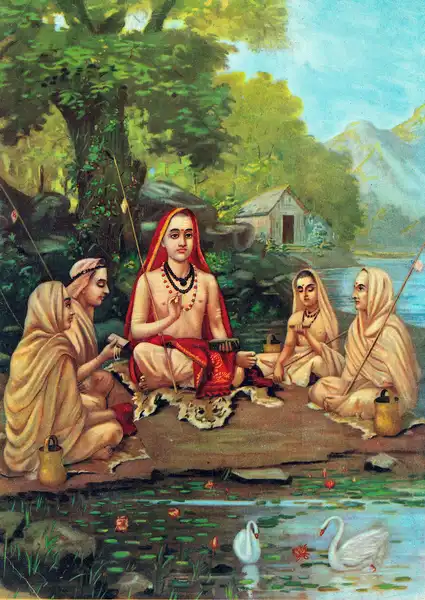How to analyze Disputes using Vedic Astrology?
Introduction:
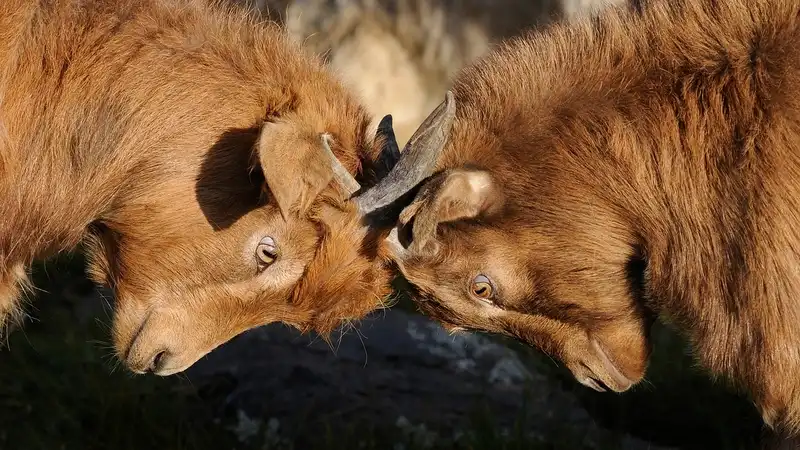
The utilization of Vedic astrology to analyze Disputes offers an intriguing exploration into the ancient Indian astrological system, Jyotish. This approach to analyze Disputes involves a meticulous examination of the birth charts of parties in conflict, with the objective of unveiling the underlying origins, timing, and potential remedies for disputes. Key factors under scrutiny encompass planetary alignments, adverse influences, and the prevailing planetary periods. It’s imperative to acknowledge that Vedic astrology serves as a supplementary tool to conventional conflict resolution methodologies, rather than a replacement. Engaging with seasoned Vedic astrologers can furnish individuals with profound insights into their conflicts, facilitating the exploration of pathways toward resolution and harmony.
Disputes are a commonplace occurrence within both personal and professional relationships, precipitated by a myriad of factors, such as misunderstandings, dissenting opinions, or disparities in values, convictions, and interests. The Vedic Astrology Dispute Consultation service offers counsel and direction to facilitate the resolution of such challenges.
Types of Disputes:

Various types of disputes can arise among individuals, encompassing a broad spectrum of scenarios:
- Monetary Disputes: These disputes encompass conflicts concerning financial obligations, expense sharing, or the terms of financial agreements.
- Relationship Issues: Such conflicts may emerge between partners, family members, or friends, revolving around disagreements over time allocation, conflicting values or beliefs, or concerns regarding trust and loyalty.
- Property Disputes: These disputes pertain to disagreements over the ownership of physical or intellectual property, property boundaries, access rights, or shared property management.
- Employment Conflicts: These disputes may involve employers and employees, touching upon issues like wages, working conditions, job performance, as well as disputes among co-workers regarding workload or promotions.
- Personal Injury Disagreements: These disputes can arise from accidents or incidents leading to injuries, such as car accidents or slip-and-fall incidents.
- Legal Disputes: These disputes revolve around legal matters, including conflicts over contracts, wills, and other legal agreements.
- Boundary Disputes: These conflicts emerge among neighbors and encompass shared property boundaries, noise levels, and other aspects impacting the quality of life within a shared community.
- Communication Challenges: These disputes involve misunderstandings, disagreements related to communication tone or content, or disputes about conflict resolution methods.
Vedic Astrology to analyze Disputes offers a means to assess and resolve these diverse challenges, among others.
Factors to analyze Disputes:

Vedic Astrology to analyze Disputes posits that a confluence of factors can precipitate challenges and troubles in an individual’s life. This amalgamation comprises Duryogas, the influence of the 6th, 8th, and 12th houses, or their respective lords, along with unfavorable planetary periods (Dasha) and transits (Gochar). These factors to analyze Disputes can cast shadows across diverse facets of an individual’s existence, engendering obstacles and predicaments necessitating resolution. Vedic Astrology to analyze Disputes conduct an exhaustive analysis of the horoscope to comprehend these intricate dynamics.
In Vedic Astrology to analyze Disputes, the 6th, 8th, and 12th houses are designated as the “Dusthana” houses, traditionally associated with trials, complexities, and impediments across various life domains, including professional and career aspects. A succinct delineation of these houses follows to analyze Disputes:
- 6th House: This house signifies obstacles, adversaries, disputes, illnesses, and daily labor. Concerning career, it can denote challenges in the workplace, rivalry, and conflicts with coworkers or subordinates. Nevertheless, the 6th house also aligns with service-oriented vocations and may signify triumph through diligence and tenacity.
- 8th House: The 8th house is linked with transformation, clandestine matters, and unforeseen occurrences. Pertaining to a career, it may portend abrupt transitions, unanticipated hurdles, and setbacks. Additionally, the 8th house is connected with research, esoteric sciences, and professions related to insurance, taxation, and inheritances.
- 12th House: This house represents seclusion, losses, expenditures, and spiritual pursuits. In the realm of career, it can indicate employment in foreign locales or with international clientele, professions intertwined with spirituality, retreats, and humanitarian endeavors. Furthermore, the 12th house can allude to financial outlays associated with professional or career matters.
In Vedic Astrology to analyze Disputes, specific celestial bodies bear a natural malefic influence due to their intrinsic characteristics and symbolism. These planets, Mars (Mangal), Saturn (Shani), Rahu, and Ketu, are commonly referred to as natural malefic. A succinct portrayal of these planets ensues to analyze Disputes:
- Mars (Mangal): Mars embodies energy, assertiveness, ambition, and competitiveness. It can instill drive and determination but, when afflicted, may provoke impulsive actions, conflicts, and accidents.
- Saturn (Shani): Saturn symbolizes discipline, responsibility, and the imparting of valuable life lessons through challenges and constraints. When adversely positioned, it can engender delays, hindrances, and a sense of restriction or burden.
- Rahu: Rahu, known as the North Node of the Moon, signifies worldly desires, ambitions, and materialism. It can ignite intense desires and obsessions, leading to restlessness and delusions. An afflicted Rahu can introduce confusion, sudden alterations, and unrealized aspirations.
- Ketu: Ketu, the South Node of the Moon, represents spiritual growth, detachment, and enlightenment. It can usher in unconventional thinking and detachment from material desires. However, an adverse Ketu may induce perplexity, detachment from worldly affairs, and a feeling of isolation.
It is imperative to recognize that the classification of planets as malefic or benefic is not absolute, as their effects hinge upon a plethora of variables, including their placements, aspects, conjunctions, and individual birth charts. A well-placed natural malefic can yield positive outcomes, while a benefic planet can pose challenges when afflicted by adverse influences. A holisitic analysis of individual horoscope is required to analyze Disputes and offer any advice.
A Debilitated Graha:

In Vedic Astrology, a “Neecha Graha” refers to a planet in a birth chart that is debilitated. Debilitation occurs when a planet is positioned in a specific zodiac sign where it is considered to be in its weakest state. The consequences of a debilitated planet are generally perceived as challenging or unfavorable to analyze Disputes. However, it is crucial to consider the holistic context of the birth chart, taking into account the specific planetary combinations and influences present.
The following are the debilitated planets along with their corresponding debilitation signs:
- Sun (Surya): The Sun is debilitated in Libra (Tula).
- Moon (Chandra): The Moon is debilitated in Scorpio (Vrishchika).
- Mars (Mangal): Mars is debilitated in Cancer (Karka).
- Mercury (Budha): Mercury is debilitated in Pisces (Meena).
- Jupiter (Guru): Jupiter is debilitated in Capricorn (Makara).
- Venus (Shukra): Venus is debilitated in Virgo (Kanya).
- Saturn (Shani): Saturn is debilitated in Aries (Mesha).
It’s important to note that Rahu, being a shadow planet, does not have a specific sign of debilitation.
The impact of a debilitated planet can vary based on factors such as its strength, aspects, conjunctions, and other planetary placements in the birth chart. Additionally, the debilitation is not solely negative, as it can signify areas of life where an individual can undergo valuable lessons and personal growth by confronting challenges associated with that planet’s attributes.
A proficient astrologer takes into consideration the entirety of planetary positions and combinations in the birth chart to assess the precise effects of a debilitated planet to analyze Disputes and offers guidance on effectively navigating its energies. A range of remedies and corrective measures can be recommended to fortify the debilitated planet and harmonize its impact on one’s life. Vedic Astrology to analyze Disputes demands a wealth of experience and empathy in providing such insights.
A Combust Graha:

In astrology, a combust planet signifies a planet closely aligned with the Sun within the same zodiac sign. When a planet combusts, its inherent significance and energies can be influenced or subdued by the intense radiance and dominance of the Sun. Here are pertinent aspects to consider concerning combust planets to analyze Disputes:
- Diminished Influence: A combust planet tends to experience a reduction in its energy and impact due to the overpowering presence of the Sun. The Sun’s brilliant light can overshadow the planet, leading to a diminished ability to express its intrinsic qualities.
- Challenged Significations: The attributes and significations represented by the combust planet may encounter hurdles or complications. The precise effects are contingent upon the nature and condition of the specific planet involved. For instance, a combust Venus might indicate challenges in relationships or a compromised sense of harmony and aesthetic appreciation.
- Exception: Vedic Astrology makes an exception for Mercury. Mercury is regarded as partially combust when it is within 15 degrees of the Sun but regains its potency once it moves beyond this range.
It is crucial to recognize that the consequences of a combust planet are contingent on the particular planet in question and its positioning within the birth chart to analyze Disputes. For personalized insights and guidance on how to effectively address or mitigate the implications of a combust planet in one’s chart, Vedic Astrology Dispute Consultation can offer valuable assistance.
Disputes and some important Yogas:
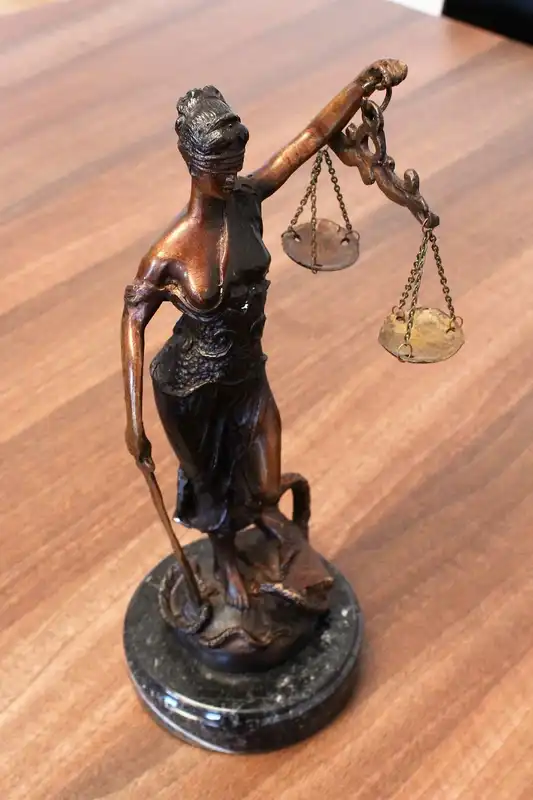
In Vedic astrology to analyze Disputes, Duryoga refers to specific planetary combinations or configurations that are considered challenging or inauspicious, potentially leading to difficulties and negative effects in various life areas. These Duryogas are analyzed in detail to analyze Disputes. Here are some examples to analyze Disputes:
- Amavasya Yoga: This occurs during the New Moon phase when the Sun and Moon are in conjunction in the same zodiac sign. It is associated with low energy, introspection, and a lack of lunar illumination. Traditionally, Amavasya is considered an inauspicious time for initiating important activities, as they may face obstacles or lack momentum.
- Kemadruma Yoga: This yoga arises when there are no planets in either the 2nd or 12th house from the Moon. It is often seen as an inauspicious yoga linked to emotional instability, financial challenges, and a lack of support or resources.
- Vish Yoga: Vish Yoga forms when the planet Saturn is positioned with the Moon. It is connected with mental stress, depression, obstacles, and challenges in various aspects of life.
- Papakartari Yoga: This yoga takes shape when malefic planets flank a house or a benefic planet, creating a planetary barrier. It can lead to obstacles, delays, and negative effects related to the significations of the house involved.
- Grahan Yoga: Grahan Yoga involves the lunar nodes, Rahu and Ketu, in a birth chart, particularly when they are in close conjunction or aspect with other planets or significant points. It can have both positive and negative effects, depending on the specific planetary configurations and the overall strength of the chart.
- Guru Chandal Yoga: Guru Chandal Yoga forms when the planet Jupiter (Guru) is in conjunction with or aspected by the shadow planet Rahu (Chandal). This combination can create a unique astrological influence with both positive and challenging consequences.
- Shrapit Yoga: Shrapit Yoga occurs when Saturn and Rahu are in conjunction or in mutual aspect in a birth chart. It is believed to bring karmic challenges, delays, and difficulties across various life domains.
It’s essential to remember that the impact of Duryogas can vary depending on the overall strength of the planets involved, their placements, aspects, and other factors within the birth chart. Vedic Astrology can offer personalized insights into these complex combinations and provide guidance on remedies and strategies to mitigate their effects effectively.
Vedic Astrology recognizes the presence of Daridra Yoga, which signifies planetary combinations or placements in a birth chart associated with financial difficulties or a lack of prosperity. These yogas indicate challenges in wealth accumulation. Here are a few instances of Daridra Yogas to analyze Disputes:
- Weak or Afflicted Wealth Houses: When the 2nd, 6th, 8th, or 11th house in a birth chart is weak, afflicted, or occupied by malefic planets, it suggests financial hardships and struggles.
- Malefic Planets in Wealth Houses: The presence of malefic planets like Saturn, Mars, or Rahu in the 2nd, 6th, 8th, or 11th house can create obstacles and limitations in terms of wealth accumulation and financial stability.
- Weak or Afflicted Planets of Wealth: When planets signifying wealth, such as Jupiter and Venus, are weak, afflicted, or poorly placed in the birth chart, it implies challenges in generating and retaining wealth.
- Debilitated or Combust Wealth Planets: If planets associated with wealth, such as Jupiter and Venus, are debilitated or combust, their capacity to bring financial abundance and prosperity is diminished.
It’s essential to remember that the influence of Duryogas, including Daridra Yogas, is not solely determined by astrology but can be influenced by a myriad of factors. Vedic Astrology Dispute Consultation can provide insights into these astrological combinations and offer guidance on potential remedies and actions to enhance financial prospects.
Consulting with a skilled astrologer who can conduct a thorough study of your birth chart to analyze Disputes is invaluable. Such an astrologer can provide a more precise understanding of any Duryogas or other astrological combinations present and offer tailored guidance on how to mitigate their effects through suitable remedies and actions.
Additionally, Vedic Astrology to analyze Disputes can illuminate the timing of the dispute, highlighting periods of heightened tension or favorable opportunities for resolution. Armed with this understanding of astrological influences, individuals can make more informed decisions and take appropriate actions to address conflicts in a constructive and proactive manner.
Remedies to Resolve Disputes:

Vedic Astrology to analyze Disputes offers a range of remedies and practices that may assist in mitigating negative influences and fostering harmony. These remedies often draw from ancient astrological traditions and can encompass various actions, including:
- Wearing Specific Gemstones: Wearing gemstones associated with beneficial planets in your birth chart is a common practice. These gemstones are believed to enhance positive energies and reduce the impact of malefic planets. For instance, wearing a blue sapphire for Saturn or a diamond for Venus can be recommended based on your chart.
- Rituals and Puja: Performing specific rituals and pujas (ceremonial worship) dedicated to favorable planetary deities can help appease planetary energies and promote harmony. Each planet is associated with particular deities, and propitiatory rituals can be conducted to seek their blessings.
- Chanting Mantras: Reciting mantras related to peace, harmony, and conflict resolution can be beneficial. Mantras like the Gayatri Mantra, Om Shanti Mantra, or specific planetary mantras can be chanted regularly to alleviate negative influences and cultivate a peaceful environment.
- Acts of Charity: Engaging in acts of charity or helping those in need is considered an effective remedy in Vedic Astrology. Such actions are believed to accumulate positive karma and balance unfavorable planetary energies.
- Yantras and Talismans: The use of yantras (sacred geometric diagrams) and talismans associated with specific planets can be recommended. These are believed to harness planetary energies and protect against negative influences.
Seeking guidance from experienced astrologers who specialize to analyze Disputes, conflict resolution and relationship matters is essential. They can provide personalized insights based on your birth chart, identify the astrological factors contributing to disputes, and suggest suitable remedies and strategies.
While these astrological remedies can be valuable, it’s important to recognize that they are not guaranteed to resolve disputes on their own. Effective dispute resolution also requires open communication, empathy, and a willingness to find common ground. Astrology can provide insights into underlying dynamics, but it is ultimately up to individuals to actively work toward resolving their differences in a fair and respectful manner. Combining astrological remedies with practical efforts can lead to more successful dispute resolution and the promotion of harmony.
Conclusion:
To analyze Disputes through the lens of Vedic astrology involves a meticulous examination of the birth charts of individuals embroiled in conflicts. Vedic astrology, also known as Jyotish, aims to illuminate the underlying causes and potential resolutions of disputes by taking into account the celestial positions at the time of a person’s birth.
To analyze Disputes, obtaining accurate birth charts, or Janma Kundali, for all parties involved is paramount. These charts encompass crucial components such as the ascendant (rising sign), the Moon sign, and the positions and aspects of planets. Special attention is given to malefic planets and planetary combinations associated with rivalry or conflict, as well as any afflictions affecting the 6th, 8th and 12th housees, which are linked to disputes.
Additionally, an analysis of the current planetary periods (Dasha) and transits is undertaken to pinpoint the timing and triggers for disputes. Remedies, which may include recommendations for specific gemstones or ritual practices, can be proposed based on the astrological assessment.
It is vital to bear in mind that while Vedic astrology can provide valuable insights to analyze Disputes, it serves as a tool for understanding rather than a definitive solution. Seeking the counsel of an experienced Vedic astrologer is highly recommended for a comprehensive analysis and personalized guidance. However, individuals should also prioritize dispute resolution through effective communication and negotiation and may involve legal and counseling professionals as necessary.
I aspire for this article to provide you with assistance. Should you discover value within these words, kindly contemplate sharing them with your loved ones. I invite you to spare a moment to offer your thoughts and appraisals below. For further remarkable content akin to this, I encourage you to delve into our website. Additionally, I extend an invitation to subscribe to my YouTube channel for forthcoming materials of similar nature. Lastly, feel unrestrained to establish a connection with me through social media. Wishing you a splendid day ahead!
हरि ॐ तत्सत्
FAQs:
Here are some frequently asked questions (FAQs) regarding how to analyze disputes using Vedic Astrology:

